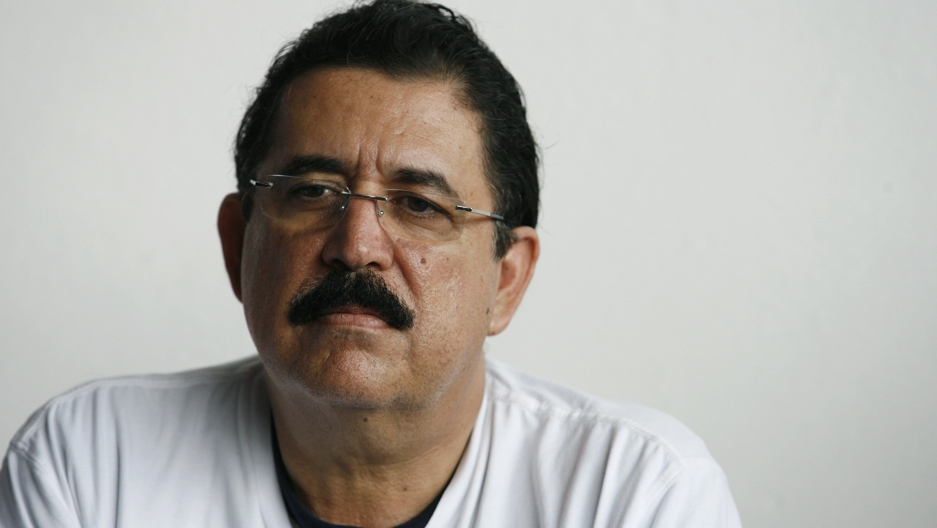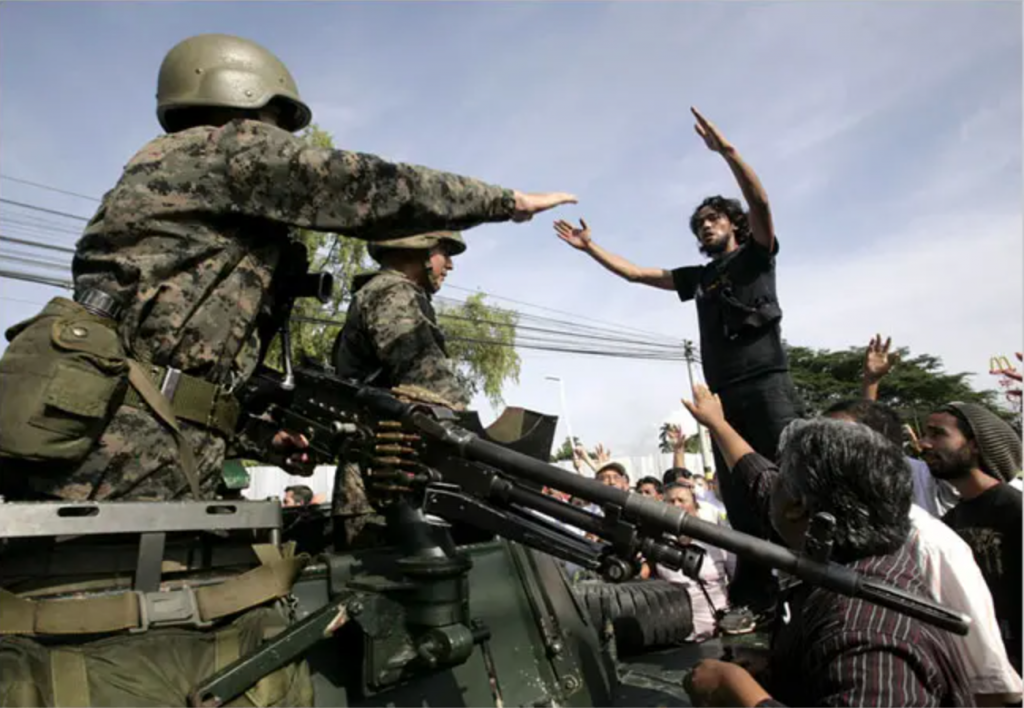
On June 28th of 2009, soldiers of the Honduran military disarmed the presidential guard and made their way inside the home of President Zelaya. They stormed Zelaya’s bedroom, and rushed him out in his pajamas, forcing him on to a plane that would exile him to Costa Rica.
Zelaya lived in this home with his family, including his children. Despite the fierce resistance his guards put up, after ten minutes of gunfire, in what Zelaya describes as a “brutal kidnapping,” the soldiers told President Zelaya if he didn’t put down his cellphone they would kill him.

This same day, leftist President Zelaya arrived at the Juan Santamaria airport in Alajuela, Costa Rica, and he gave a news conference. It was not how his supporters were used to watching him. He did not have on his usual cowboy hat and boots with an optimistic face. Oscar Arias, President of Costa Rica, immediately put his support behind Zelaya and urged the rest of the world to condemn this military coup. Arias was a well-respected leader who earned a Nobel Peace Prize for his hand in ending the 1980 contra wars that occurred throughout the region. Arias remarked that he felt democracy in Central America had reached a point in which these coups would no longer occur.
This coup is significant because it was the first military coup in Central America since Guatemala’s in 1982. Moreover, President Zelaya was a rancher and seen as a president of the people- especially the poor and for labor unions. Zelaya had the support of Venezuela’s President, Hugo Chavez, who blamed this coup on the United States. Zelaya was feared by the middle class and the wealthy, fearing he would bring socialism to Honduras, one of the poorest countries in Latin America. The United States did little to intervene in this matter, though the Obama administration recognized Zelaya as the constitutional President of Honduras. This is especially important to this period in modern Latin America, because it shows the consequences of lack of intervention, which we rarely see from the United States, especially in Central America, after decades of brutal intervention leading to instability in the region.

Works Cited:
Leff, Alex. “Honduran Coup Stuns Friends and Neighbors.” The World from PRX, June 30, 2009. https://www.pri.org/stories/2009-06-30/honduran-coup-stuns-friends-and-neighbors .
Malkin, Elisabeth. “Honduran President Is Ousted in Coup,” June 28, 2009. https://www.nytimes.com/2009/06/29/world/americas/29honduras.html.
